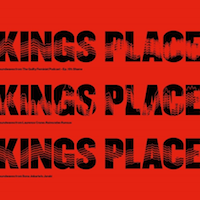| Mary Bevan | Soprano | |
| Rozanna Madylus | Vocals | |
| Robert Murray | Tenor | |
| Roderick Williams | Baritone | |
| Sholto Kynoch | Piano | |
| Orchestra of the Age of Enlightenment | Principal Players |
Schubert
Octet in F, D803 (1824)
An hour in length, this is a chamber music epic: Schubert himself said that he regarded it as preparatory to writing a symphony. His friend Moritz von Schwind famously wrote that "Schubert has now long been at work on an octet, with the greatest enthusiasm. If you go and see him during the day he says ‘Hello. How are you?’ and carries on working, whereupon you leave.”
Archduke Rudolph's chief steward had requested it to be ‘exactly like Beethoven's Septet’, an intimidating order which inspired the choice of instrumentation (with added second violin), and six-movement structure. Both revive the art of the divertimento, but Schubert's feast of song and dance has an undeniably Romantic quality.
The scherzo may be puckishand the variations archly knowing,but the Adagio has sustained beauty and his trio elevates the rustic ländler to great music.
Accompanying pieces
Amidst an impressive body of chamber music from this year, including the Death and the Maiden quartet, Schubert also wrote a small number of perfectly formed songs and tonight we hear them all, including the radiant vocal quartet, Gebet.
Alongside the members of the Orchestra of the Age of Enlightenment, Roderick Williams heads up a team of world-class singers for an irresistible finale to Oxford Lieder’s Schubert residency.
Part of Kings Place's Chamber Classics Unwrapped concert series in 2014


